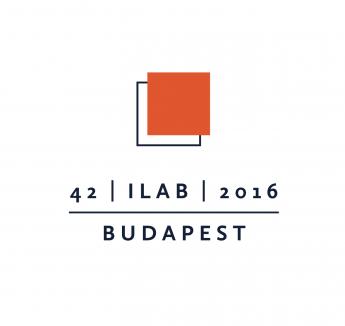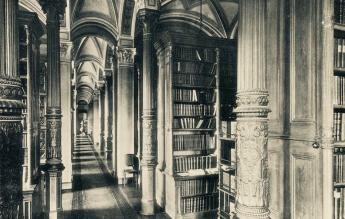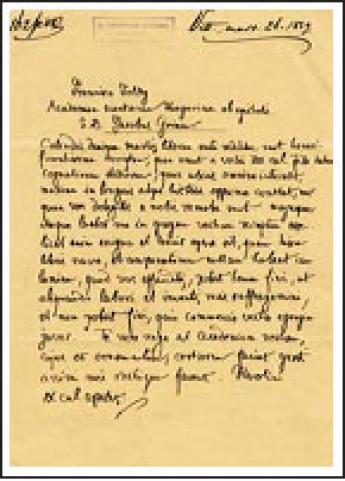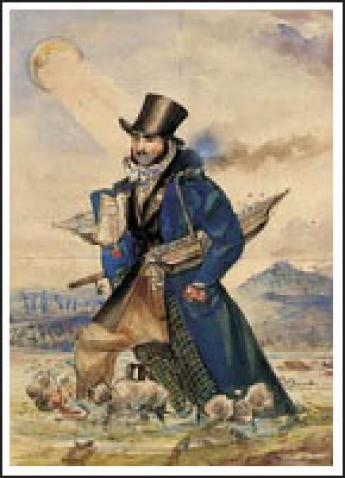Magyar Antikváriusok Egyesülete Bosze Adam Zenei Antikvarium / Adam Bosze Music Antiquarian
BUDAPEST 2016 - ILAB CONGRESS & INTERNATIONAL ANTIQUARIAN BOOK FAIR

For the first time ever ...
... the Hungarian rare book dealers invite colleagues and collectors from across the world to Budapest. The 42nd ILAB Congress and 26th ILAB International Antiquarian Book Fair from 21 to 25 September 2016 will present Budapest as one of the most beautiful cities and one of the most fascinating book capitals in Europe.
Dear Colleagues,
Before the First International ILAB Congress and Fair in Budapest in September, we would like you to have a glimpse into its programme. First of all, we have prepared a brief series on the most prestigious libraries of Budapest, starting with the
The Library of the Hungarian Academy of Sciences
The Library of the Hungarian Academy of Sciences was established by historian Count József Teleki, the first President of the Academy, who offered his 30,000 volume library to the Academy in 1826. The collection, growing with help from various sources, was opened in 1844 for scholars after completing the necessary organizational and processing work. In 1865 the Library received suitable and up-to-date accommodation in the newly constructed palace of the Academy, built based on the plans of August Stüler. In the course of the following decades the collection developed from several sources, such as valuable endowments, legal deposits, exchange contracts with foreign societies and academies, by purchasing foreign books and subscribing to foreign periodicals. The main fields of interest were first defined in 1869 while Baron József Eötvös headed the Ministry of Religious Affairs and Culture.
The steady development of the Library came to an end with World War I. The investment capital of the Academy lost value due to inflation, and publishing activity almost completely ceased. The majority of exchange contracts got cancelled as a result of the diminishing number of exchangeable publications. The lack of funds and the war had a bad influence on the development of the collection, which could hardly be compensated for by the Vigyázó bequest acquired by the Academy in 1929. Between the two world wars, the development of the Library stopped and, in spite of all efforts, it could not sustain its former standard. World War II caused only minimal damage to the building, and after the restoration the institution could function again. The reorganization of the Academy in 1949 represented a landmark in the history of the Library.
In addition to the Core Collection, the Library of the Academy also proudly hosts the following, more unique collections:
Department of Manuscripts and Rare Books
The Library of the Hungarian Academy of Sciences is based on the 30,000 volumes donated by the Academy's first president,Count József Teleki(1790–1855), to the Learned Society in 1826. With this collection, 600 manuscript volumes and 409incunabula(books printed before 1500) were acquired by the Library, whose Department of Manuscripts had been an independent unit since 1861. n 1954. In the same year the bulk of pre-1800 foreign and pre-1850 Hungarian books was transferred to the Department from the Library's main stacks.
Oriental Collection
Although the necessity of the formation of a separate Oriental Collection was stated by Hungarian scholars already in the 19th century, it was established as a special unit within the Library thanks to the efforts of the then Vice-President, the outstanding Orientalist Louis Ligeti(1902–1987), only after the restructuring of the Hungarian Academy of Sciences in 1949. The Collection, known at that time as the Oriental Library, was opened in 1951 on the ground floor of the Palace of the Academy to become the main reference library of Oriental studies in Hungary. Its development, including the Oriental design of its reading room, praises the Turcologist László Rásonyi who headed the Collection from 1951 to 1961. He selected its East-related stock from the old divisions of the Library. In addition to contemporary monographs, the Collection became enriched by 16th–18th century books written about the Orient or in Oriental languages. The holdings also include the most comprehensive Hungarian collection of periodicals of Oriental studies together with unique manuscripts. The acquisition of the periodicals started in the 19th century, accordingly we have complete serials from these most prestigious journals. From among the manuscripts the Tibetan, Turkish and Hebrew collections are of international importance, the majority of which were donated to the Library. In addition to the special units described below a few manuscripts from Ethiopia, India and the Far-East are also to be found here.
We hope to see you there!
42nd ILAB Congress
26th International Antiquarian Book Fair
Budapest, Hungary
21 – 25 September 2016
>> To register online and for more information please visit the official website.
>> For any further questions please contact the organizer at revhegyi@congressline.hu
(Pictures and text: Antiquarian Booksellers’ Association of Hungary, MAE)



